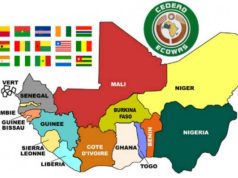African women are leading the global charge in entrepreneurship, with 24% actively engaged in starting or running businesses—the highest rate of female entrepreneurial activity in the world. Yet despite this momentum, they face a staggering $42 billion financing gap that severely limits their ability to scale, innovate, and create jobs. As Africa’s economy evolves, unlocking capital for women-led ventures has become not just a matter of equity, but of economic necessity.
To bridge this gap, a growing number of targeted initiatives are emerging across the continent—offering more than just money. These programs provide mentorship, training, networking, and sector-specific support designed to help women overcome systemic barriers such as limited access to networks, gender bias in lending, and gaps in financial literacy.
One such initiative is the 360 Woman Africa Enterprise Fund, which supports women-led businesses in Nigeria through capacity-building workshops, leadership training, and mentorship. While the fund does not publicly disclose its financial disbursements, it focuses on early-stage enterprises, helping founders refine their business models, improve governance, and prepare for investment readiness.
On the technology front, the Tech FoundHER Africa Challenge stands out as a major catalyst for innovation. Offering $100,000 grants to tech-enabled startups led by women, the pan-African competition targets ventures leveraging artificial intelligence, fintech, healthtech, and digital platforms to solve real-world challenges. With a deadline set for September 30, 2025, the program has already attracted hundreds of applicants from over 30 countries, underscoring strong demand for high-impact, scalable solutions.
In the green economy, the IYBA WE4A Programme (Women Empowerment for Africa) provides funding ranging from $5,000 to €50,000 for environmentally focused businesses across eight African nations: Kenya, Uganda, Tanzania, Rwanda, Ethiopia, Senegal, Côte d’Ivoire, and Ghana. The program prioritizes circular economy models, renewable energy, sustainable agriculture, and climate-resilient enterprises—sectors where women play a central role but often lack formal financial backing.
These initiatives reflect a broader shift: funding for African women entrepreneurs is no longer limited to microloans or social impact grants. A new generation of investors, development partners, and governments is recognizing that when women receive equitable access to capital and support, they deliver outsized returns—not only in revenue but in job creation, community development, and inclusive growth.
Beyond capital, success hinges on ecosystem building. Many of these programs pair funding with structured mentorship from seasoned entrepreneurs, access to investor networks, and training in pitch preparation, digital marketing, and financial management. This holistic approach addresses root causes of exclusion, empowering women to navigate complex markets with confidence.
Sector-specific opportunities are also expanding. In agriculture, women-run cooperatives are accessing blended finance to modernize supply chains and export produce. In clean energy, female founders are launching solar distribution networks and eco-cooking solutions. And in tech, rising numbers of women are founding SaaS startups, edtech platforms, and AI-driven logistics tools—all once considered male-dominated domains.
Still, structural challenges remain. Traditional financial institutions often require collateral many women don’t possess. Biases persist in venture capital rooms. And too often, women operate in informal sectors with little documentation to prove creditworthiness.
Yet the tide is turning. With increasing evidence that women reinvest up to 90% of their income into their families and communities, donors and investors are re-evaluating risk and return. Governments are enacting policies to promote gender-lens investing, while regional bodies like the African Development Bank are scaling flagship programs such as Affirmative Finance Action for Women in Africa (AFAWA).
For African women entrepreneurs, the message is clear: while the road remains steep, pathways to funding are widening. By aligning with targeted programs, refining business models, and connecting with supportive ecosystems, thousands are transforming constraints into competitive advantage.
As more women move from survivalist enterprise to scalable business ownership, the impact will ripple across economies—proving that closing the finance gap isn’t just fair, it’s foundational to Africa’s future.
Follow us on Instagram.
https://www.instagram.com/businessnewsng?igsh=ZXpweTdjOGF1ZXdu

























